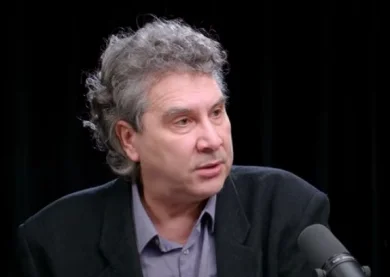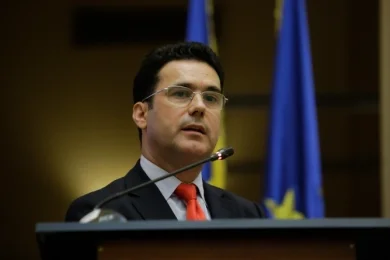
Romania has been undoubtedly under the hybrid siege of Russia for some time now. It is conducting very aggressive propaganda, with coordinated attacks, both politically and in the media. The peak was reached in November 2024, during the campaign for the presidential elections, with the intervention in favor of Călin Georgescu, which also led to the cancellation of the first round of voting and his subsequent removal from the presidential race. However, the danger has not definitively passed; it lurks around the corner, waiting for the next electoral vote or for some early elections, which the same propaganda is trying to force.
A warning signal about the danger of Russia's hybrid attack is being raised these days by civil society as well. The President of Romania, Nicușor Dan, and Prime Minister Ilie Bolojan are being urged through an online petition to urgently treat the hybrid war as a zero priority, as a huge threat to national security. "In the current geopolitical context, the democratic future of Romania and even its sovereignty and territorial integrity are at stake. Wars are won today quietly and systematically through the manipulation of information. Fake news, narratives favorable to the geopolitical adversary, paid actions of local political actors. (...) In our region, we have an aggressor nominated by the organizations we are part of, the EU and NATO: Russia. It has been conducting hostile and destabilizing actions in Western countries for over 10 years and for almost 4 years has been waging a military aggression war against a neighboring sovereign country. (...) We ask you not to leave us at the mercy of Russia," the petition titled Political Action Against the Hybrid War states.
Members of the National Audiovisual Council have noticed, after the presidential elections on May 18, a change in the strategy of Russian propaganda in Romania, draws attention Valentin Jucan, vice president of the institution: "We have been attacked through platforms, we have been attacked with bots, we have been attacked using deepfake, we have been attacked by undermining our trust in institutions, we have been attacked by compromising history and falsifying the truth. (...) We see a change in the information war. The aim is to change the desire of Romanians to continue living in a democratic country and to redirect the options of Romanians from a pro-Western country to an isolationist one, which we all know actually leads to a reorientation of Romania towards exiting the EU and remaining in the orbit of the Russian Federation."
Not at all coincidentally, these hybrid attacks, which aim to distribute themes from the Kremlin's discourse, are intensified during this period of social tensions generated by the measures - inevitable - taken by the Bolojan Government for the financial recovery of the country. In the absence of these measures, in the event of a failure of the reforms, Romania's entry into insolvency, bankruptcy that is, is just a matter of time. A situation that would push Romania into chaos. However, destabilization represents one of the Kremlin's goals.
Segments of the population fanatized by pro-Russian, anti-Western propaganda also need a political vehicle. AUR and the pseudo-sovereignist gang are also making plans to overthrow the Bolojan Government and, by extension, for early elections. Not alone, as they cannot, but in alliance with PSD, the exponent of the "system" that AUR & co demonize in demagogic speeches. AUR hopes that the social democrats will betray the governing coalition either by leaving the Government or by helping with votes a motion of censure to overthrow the Bolojan Cabinet. George Simion has publicly spoken about his dream of coming to power, in the fall, alongside PSD. The party that, until now, he has called part of the "system" that has destroyed Romania and about which he said has been put in formaldehyde to appear "clean and respectable." Here he is now rushing to swallow the "frog with formaldehyde," because demagoguery has become customary in the case of the AUR leader. Moreover, he wants Călin Georgescu, the pro-Russian and legionnaire-loving one, as prime minister, another who pretends, for votes, to fight the "system," of which he himself has been a part for years. Even part of a very discreet structure of the "system," which may explain his "missions" in the USA before 1989, and the silence of the SIE on the subject, then the Viennese period, in which it is unclear how he lived.
Alongside the already existing pseudo-sovereignist parties, which have not managed to impose themselves at the top of the state, the establishment of a new one is announced. Named Ro-Exit - so that no trace of doubt remains regarding the political agenda: the removal of Romania from the EU. Ro-Exit has been an idea circulated in the public space since 2017-2018, by other figures of the pseudo-sovereignist movement: former SRI colonel Daniel Dragomir and Dan Chitic, another "patriot" praised by Russian propaganda and considered to be "perhaps the first to raise the flag of Romanian sovereignty." Dragomir, a vocal promoter of Ro-Exit - meanwhile convicted for acts of corruption, founded in December 2017 the civic platform Romania 3.0, which aimed to "regain national dignity," and in the summer of 2018, he unsuccessfully tried to transform it into a nationalist party. Later, together with Dan Chitic, he founded the National Alliance Party, which had among its main objectives "the restoration of the dignity and sovereignty of the country." Behind the recently formed Ro-Exit party stands the common law criminal Sorin Ovidiu Vântu, the architect of the mega-financial scam FNI, which defrauded tens of thousands of Romanians, convicted in two major corruption cases and released conditionally. Ro-Exit, says SOV - who claims that "the West represents the tormentors of the Romanian people" - will be a party that also seeks collaboration with the former pro-Russian presidential candidate, Călin Georgescu, reactivated shortly after losing the presidential election on May 18, although he announced that he was withdrawing from political life, meanwhile being placed under criminal investigation for complicity in an attempted coup.
The major danger is that a large part of the population is permeable to this type of deceitful messages, because they have neither education nor civic education, and therefore cannot develop mechanisms of immunization against disinformation. In fact, many have been mancurtized by Russia and its voices in Romania, convincing them that, in fact, there are no campaigns of disinformation launched by the Kremlin. (Pro-)Russian propaganda works intensively, trying to play its game. Not with tanks, as in the 1950s, but through the votes cast by minds twisted by propaganda for politicians favored by Moscow, who will one day bring Romania back into the sphere of influence of Russia.




.webp)


